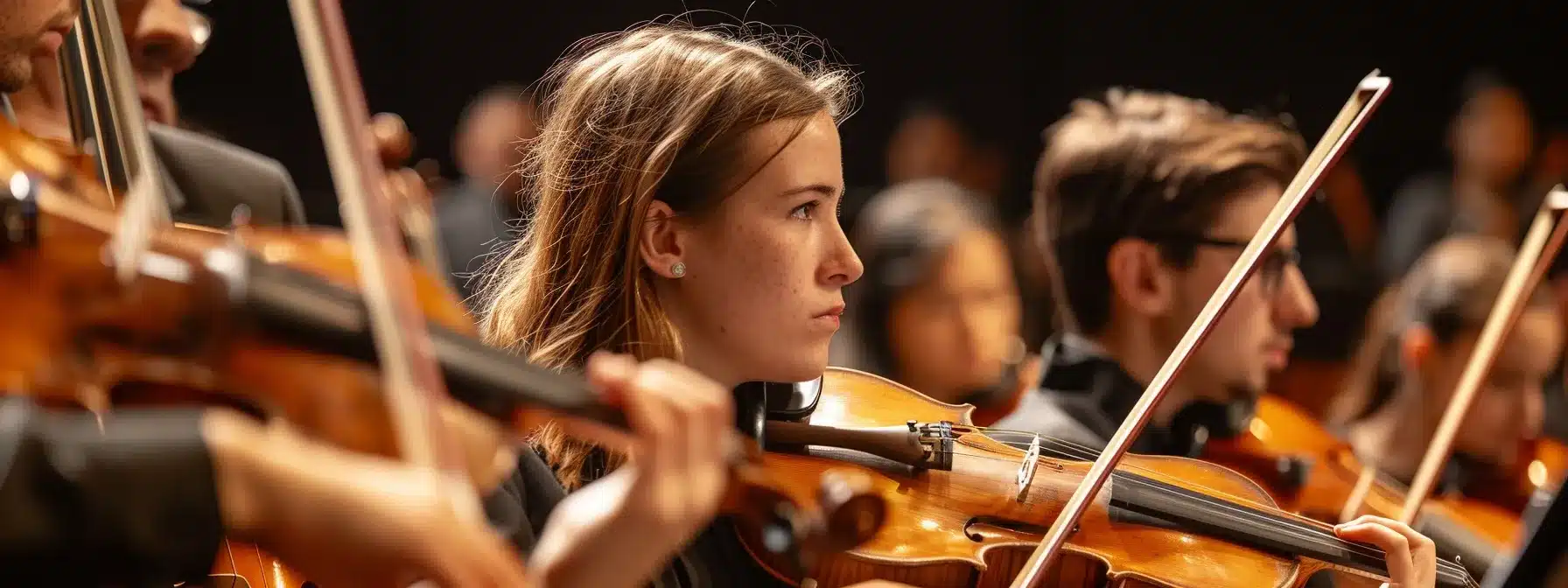The Art of Rehearsal Etiquette in Community Orchestras

Table Of Contents:
- The Art of Rehearsal Etiquette in Community Orchestras
- Understanding the Basics of Rehearsal Etiquette
- Arrive Prepared and on Time
- Bring All Necessary Materials
- Tune Quietly and Efficiently
- Pay Attention to the Conductor
- Mark Your Music Discreetly
- Respect Silence During Instructions
- Navigating Group Dynamics With Respect
- Recognize the Role of Each Instrument
- Offer Help Without Overstepping
- Develop a Constructive Feedback Mindset
- Celebrate Peers’ Successes Genuinely
- Effective Communication During Rehearsals
- When and How to Ask Questions
- Sharing Ideas Without Dominating
- Addressing Issues With Tact and Respect
- The Importance of Punctuality and Preparation
- How Early Arrival Impacts the Ensemble
- Preparing Your Part Outside of Rehearsals
- The Effects of Last-Minute Cancellations
- Managing Your Personal Space and Equipment
- Respecting Others’ Instruments and Property
- Setting Up Your Space Efficiently
- Handling Shared Music and Stands Appropriately
- Beyond Rehearsal: Etiquette for Performances
- Dressing Appropriately for Concerts
- Interacting With the Audience and Venue Staff
- Post-Performance Etiquette
- Conclusion
Joining a community orchestra near you can be an enriching experience, whether you play a reed instrument like the clarinet or a member of the string section. Understanding rehearsal etiquette is essential for fostering a positive environment where everyone can thrive under the guidance of your music director. Good manners and respectful interactions contribute to the overall success of the group, helping to create music that resonates with all. Keep reading to discover the key components of rehearsal etiquette that will not only enhance your playing but also strengthen the bonds within your orchestra.
Understanding the Basics of Rehearsal Etiquette

Rehearsal etiquette plays a vital role in fostering a positive culture within community orchestras and choirs. Whether you’re preparing for an important concert or gearing up for an audition, understanding the unwritten rules can set you apart as a dedicated musician. Arriving prepared and on time shows respect for both your fellow musicians and the leadership of the conductor. Bringing all necessary materials ensures that you can fully engage in the rehearsal process. When it comes time to tune, do so quietly and efficiently to maintain focus. Pay close attention to the conductor‘s instructions; their guidance is essential to achieving a harmonious sound. Mark your music discreetly and respect moments of silence—these are critical for facilitating communication during rehearsals. By adhering to these principles, you contribute to a thriving ensemble that values professionalism and collaboration.
Arrive Prepared and on Time
Arriving on time reflects your commitment to concert etiquette within the community orchestra near me or choir. It allows you to settle in, prepare mentally, and build the rhythm with your fellow musicians before the rehearsal begins. This proactive attitude lays a strong foundation for effective learning and collaboration, enhancing the overall performance of the symphony.
Being adequately prepared means having your music, necessary instruments, and supplies ready to go. By doing so, you show respect for the time of others and contribute positively to the rehearsal atmosphere. This level of etiquette not only benefits you but also elevates the experience for everyone involved.
- Arrive at least 10 minutes early to gather thoughts and materials.
- Bring all necessary gear, including your instrument and sheet music.
- Use the time before the rehearsal to tune and warm up.
- Stay focused and ready to follow the conductor‘s cues.
Bring All Necessary Materials
When attending rehearsals, it’s essential to bring all necessary materials to ensure a smooth and productive experience. For musicians in the string section, that includes vital items like rosin for your bow to maintain sound quality and a pencil for marking changes in your sheet music. Remember, if you decide to join us and pay the membership fee, keep in mind that certain expenses may be tax deductible, which is an added benefit.
Having your materials ready not only reflects your professionalism but also shows respect for the collective effort of the orchestra. Make sure to pack everything you need before heading out, as being fully equipped allows you to engage with the conductor’s instructions and collaborate effectively with fellow musicians. Staying prepared enhances the overall rehearsal experience and ensures everyone can contribute their best selves.
Tune Quietly and Efficiently
Tuning your instrument, particularly a violin, is an essential part of the rehearsal process. As a musician, it’s important to follow the policy of tuning quietly and efficiently, ensuring that the focus remains on the conductor and the collective sound of the ensemble. Utilize your music stand to help organize your materials, minimizing noise and distractions for your fellow musicians.
Your concertmaster will appreciate it if you tune before the rehearsal begins, allowing everyone to settle in and concentrate on the session ahead. By keeping your tuning process discreet, you contribute to an environment that encourages cooperation and respect among all members of the orchestra. Adopting this practice sets a positive tone for the rehearsal and enhances the overall performance quality.
Pay Attention to the Conductor
Paying close attention to the conductor is integral to the success of any rehearsal, especially within community orchestras focused on chamber music. The conductor guides each musician, ensuring that the ensemble maintains harmony and flows seamlessly. As you watch their gestures, you refine your timing and learn how to navigate moments of silence effectively, allowing you to connect better with your fellow musicians and foster a more cohesive performance.
In addition to observing the conductor‘s cues, adhering to the rehearsal dress code demonstrates professionalism and respect for the atmosphere of the orchestra. When you’re seated ready with your oboe or any instrument, being mindful of the conductor’s instructions will elevate your performance and contribute to a productive rehearsal. This attentiveness not only reflects your dedication but also enhances the experience for everyone involved.
Mark Your Music Discreetly
Marking your sheet music is a critical behavior during rehearsals, especially in a community orchestra setting. When you make annotations, be sure to use a pencil for temporary notes that can be easily erased later. This is particularly important for musicians with specific parts in a concerto, such as a cellist, where careful markings can help you navigate complex phrases or dynamics more effectively.
Your marks should be clear but discreet, so they don’t distract fellow musicians or disrupt the flow of the rehearsal. By keeping your notes concise, you respect the ensemble’s efforts and showcase professionalism, all while ensuring that you pay your membership fee with the understanding that your contributions matter. Each careful annotation brings you one step closer to a polished performance.
- Use a pencil for easy corrections on your sheet music.
- Make concise notes to aid quick understanding during rehearsals.
- Respect your fellow musicians by marking discretely.
- Focus on the conductor’s cues while managing your notations.
- Contribute positively to the group’s overall performance.
Respect Silence During Instructions
In a community orchestra, silence during instructions is paramount. When the conductor speaks or provides guidance, the focus must shift entirely to them, allowing all musicians to absorb critical insights. Each member, from the first chair to the viola section, relies on these moments to align their playing and approach for the best ensemble outcome.
Additionally, respecting silence ensures that the librarian can efficiently distribute music or explain any changes without interruptions. Your attentiveness during these times demonstrates professionalism and a commitment to the collective success of the orchestra. Remember, maintaining this silence cultivates a supportive environment where every musician can thrive:
- Prioritize attentive listening when instructions are given.
- Ensure all materials are organized to minimize distractions.
- Support the librarian by allowing clear communication.
- Respect the roles of fellow musicians during rehearsals.
Having mastered the essentials of rehearsal etiquette, it’s time to deepen your experience by exploring how to thrive in a group setting. Understanding group dynamics not only enhances your performance but also enriches your connections with fellow musicians.
Navigating Group Dynamics With Respect

Navigating the dynamics of a community orchestra requires a keen understanding of the various roles that each instrument plays within an ensemble. Recognizing and appreciating the unique contributions of your fellow musicians fosters a collaborative spirit that enhances the overall performance. Offering assistance when needed, while being mindful of personal boundaries, creates a supportive atmosphere that empowers everyone to excel. Cultivating a mindset focused on constructive feedback encourages growth and development, strengthening the ensemble as a whole. Finally, make it a point to celebrate your peers’ successes genuinely; acknowledging their achievements not only boosts morale but also builds a sense of camaraderie that enriches the entire rehearsal experience.
Recognize the Role of Each Instrument
Understanding the unique characteristics and contributions of each instrument enriches the overall sound of the orchestra. You should familiarize yourself with how your part interacts with those around you, whether it’s the soaring melody of the violins or the robust foundation provided by the cellos. This awareness helps you blend your sound effectively, enhancing the cohesiveness of the ensemble.
Respecting the diverse roles each musician plays fosters a collaborative environment that encourages creativity and growth. As you recognize the efforts of your fellow players, you not only contribute to a respectful atmosphere but also create opportunities for meaningful interactions and teamwork. Embracing this mindset elevates the quality of your rehearsals and performances.
Offer Help Without Overstepping
Offering assistance to fellow musicians can significantly enhance the rehearsal experience, but it’s essential to strike the right balance. You can lend a hand by sharing your insights or techniques, after ensuring they are open to your guidance. This respectful approach values their skills and encourages collaboration without overshadowing their contributions.
To maintain a supportive environment, be mindful of others’ comfort levels and readiness to accept help. Understanding when to step in and when to hold back fosters a positive atmosphere, promoting trust and camaraderie within the ensemble. Consider these steps to navigate this balance effectively:
- Observe your peers to gauge their openness to assistance.
- Provide feedback only when solicited or welcomed.
- Celebrate collaborative efforts instead of competing with others.
Develop a Constructive Feedback Mindset
Embracing a constructive feedback mindset involves approaching critiques with a focus on growth and collaboration. When you offer feedback to fellow musicians, aim to highlight both strengths and areas for improvement. This balanced approach fosters a culture where everyone feels supported and motivated to enhance their skills.
Equally, being open to receiving feedback allows you to refine your craft and strengthen your contributions to the ensemble. Listen with an open heart, and consider suggestions as opportunities for development. This reciprocal exchange of ideas cultivates an environment rooted in respect and teamwork, enhancing the experience for all involved.
Celebrate Peers’ Successes Genuinely
When your fellow musicians achieve a personal milestone or deliver an outstanding performance, take the time to acknowledge their efforts sincerely. A simple compliment or public recognition can uplift spirits, fostering a positive atmosphere that motivates everyone. By celebrating each other’s successes, you contribute to a culture that values hard work and dedication within the ensemble.
As you cultivate a respectful atmosphere within your group, the next step is to harness that positive energy. Let’s dive into the importance of effective communication during rehearsals, ensuring everyone is on the same page and ready to create music magic together!
Effective Communication During Rehearsals

Effective communication during rehearsals is essential for fostering a harmonious environment in community orchestras. Knowing when and how to ask questions can significantly enhance your understanding of the music and the performance goals. It’s equally important to share your ideas while being mindful not to overshadow others; collaboration thrives when voices are balanced. When addressing any issues that arise, approach the conversation with tact and respect to maintain the camaraderie within the group. By honing these communication skills, you contribute to a positive dynamic that supports both individual growth and collective success.
When and How to Ask Questions
Asking questions during rehearsals is a vital part of your development as a musician. To ensure clarity and maintain the flow of practice, choose moments when the conductor is not explaining a section or when the ensemble has a break. This approach allows you to gather insights without disrupting the rehearsal‘s momentum.
When posing your questions, be concise and clear. Frame your inquiries in a way that encourages discussion and invites feedback from both the conductor and your peers. This respectful communication fosters an environment where everyone feels comfortable sharing their thoughts, ultimately leading to a richer understanding of the music and a more unified performance.
Sharing Ideas Without Dominating
When you share your ideas during rehearsals, focus on fostering a collaborative atmosphere that encourages the input of others. Start by inviting feedback on your suggestions, creating space for discussion rather than pushing your perspective as the only solution. This approach builds trust and facilitates a group dynamic where everyone feels valued and heard.
To ensure that your contributions enhance the conversation, practice active listening and be receptive to the thoughts of your fellow musicians. Acknowledge their insights and integrate them into your own ideas to create a more comprehensive understanding of the music. This collaborative exchange promotes a sense of ownership and teamwork, which benefits the overall rehearsal experience:
- Encourage open dialogue among your peers.
- Ask for feedback on your suggestions.
- Actively listen to your colleagues’ viewpoints.
- Integrate their ideas with yours to strengthen the discussion.
- Foster an environment centered on teamwork and support.
Addressing Issues With Tact and Respect
When you encounter challenges during rehearsals, addressing them with tact is essential. Approach your fellow musicians or conductor with a calm demeanor, focusing on the issue at hand rather than assigning blame. This respectful communication fosters a sense of teamwork and allows everyone to work collaboratively towards resolving the concern effectively.
Active listening plays a crucial role when discussing problematic situations. Make an effort to understand the perspectives of your peers, and frame your comments positively to encourage constructive dialogue. By prioritizing tact and respect, you help maintain a supportive atmosphere that empowers each member of the orchestra to grow and contribute to the overall success of the ensemble.
Communicating effectively sets the stage for a successful rehearsal. Next, let’s dive into why punctuality and preparation are vital for making the most of that time together.
The Importance of Punctuality and Preparation

Punctuality and thorough preparation are crucial elements that shape the success of community orchestras. Arriving early not only gives you time to settle in and mentally prepare, but it also positively influences the group’s dynamics. You contribute to a collective energy that fosters collaboration and engagement among ensemble members. Striving to refine your part outside of scheduled rehearsals enhances your individual performance and benefits the entire group, creating a more polished sound. On the other hand, last-minute cancellations can disrupt the flow of rehearsal, affecting both the ensemble’s morale and the overall productivity of the practice. Prioritizing punctuality and comprehensive preparation empowers you to play a vital role in creating a harmonious musical experience for all involved.
How Early Arrival Impacts the Ensemble
Arriving early to rehearsals provides everyone the opportunity to prepare mentally and physically for the upcoming session. This head start allows you to focus on any last-minute details and connect with fellow musicians before the rehearsal officially begins.
Moreover, your early presence contributes to a positive atmosphere that can energize the entire group. A strong commitment to punctuality sets a standard within the ensemble, encouraging your peers to show the same dedication and fostering a cooperative spirit:
- Gathers thoughts and prepares mentally.
- Provides time for tuning and warming up.
- Facilitates early connections with other musicians.
- Establishes a positive and collaborative environment.
- Encourages others to commit to punctuality.
Preparing Your Part Outside of Rehearsals
Preparing your part outside of rehearsals is a vital aspect of being a successful musician in a community orchestra. Set aside time to familiarize yourself with the music, focusing on challenging sections and honing your technique. This practice not only builds your confidence but also enhances the overall sound of the ensemble when everyone comes together.
Consistency in practicing your individual part leads to deeper musical understanding and stronger performance skills. Make use of recordings or metronomes to refine your timing and dynamics, allowing you to fully engage during group rehearsals:
- Allocate specific practice time each week for your parts.
- Identify challenging sections and dedicate extra attention to them.
- Use recordings to check your understanding of the music.
- Focus on dynamics and phrasing to align with the conductor‘s vision.
- Incorporate feedback from previous rehearsals into your practice routine.
The Effects of Last-Minute Cancellations
Last-minute cancellations can significantly impact the dynamics of a community orchestra. They disrupt the flow of rehearsals and can leave your fellow musicians feeling frustrated and unprepared, especially if they rely on your part to maintain the overall sound and cohesion of the performance.
Additionally, frequent cancellations may harm your reputation as a reliable member of the ensemble. Building trust and fostering strong relationships with your peers hinges on your commitment to attend rehearsals; when you prioritize attendance, you contribute to a more unified and successful musical experience for everyone involved.
Punctuality and preparation lay the foundation for success, but maintaining your personal space and care for your equipment can elevate your performance even further. Let’s explore how an organized environment contributes to a seamless and enjoyable musical journey.
Managing Your Personal Space and Equipment

Managing your personal space and equipment is essential for maintaining a harmonious environment in community orchestras. By respecting the instruments and property of your fellow musicians, you contribute to a culture of care and consideration that enhances collaboration. Setting up your space efficiently allows not only for your comfort but also minimizes distractions for those around you. Additionally, handling shared music and stands with thoughtfulness ensures that everyone can access the materials they need without complications. Adopting these practices fosters a supportive atmosphere where creativity and teamwork can flourish.
Respecting Others’ Instruments and Property
Respecting the instruments and property of your fellow musicians is paramount in fostering a cooperative atmosphere during rehearsals. Handle all equipment with care, ensuring that you return any shared items, like music stands or scores, in the same condition you received them. This practice not only shows consideration for your peers but also emphasizes a collective responsibility toward maintaining the resources that support your musical endeavors.
Additionally, be mindful of personal space and avoid encroaching on others’ areas. Maintain an organized setup for your own equipment, allowing your fellow musicians to navigate the rehearsal space without unnecessary interruptions. By demonstrating respect for both personal and shared property, you contribute to a positive rehearsal environment conducive to creativity and collaboration.
Setting Up Your Space Efficiently
Setting up your space efficiently allows you to create a comfortable and functional environment for rehearsals. Organize your sheet music and materials within easy reach, ensuring you can access them quickly when needed. This proactive approach minimizes distractions and helps maintain a focused atmosphere during practice sessions.
Consider the layout of your setup in relation to your fellow musicians to avoid crowding the space. Arranging your stand, seating, and equipment thoughtfully not only enhances your personal comfort but also respects the working environment of others around you. Prioritizing these details fosters a collaborative spirit within the orchestra:
- Keep your music organized for quick access.
- Maintain a tidy area to minimize distractions.
- Avoid crowding others by positioning your setup thoughtfully.
- Be considerate of shared resources and minimize clutter.
Handling Shared Music and Stands Appropriately
When you handle shared music and stands, approach them with a sense of responsibility and respect. Ensure that you return all materials in the same condition as you received them, minimizing wear and tear. By taking these extra steps, you help maintain the resources essential for everyone’s practice and performance.
Always be mindful of how you set up and organize shared stands during rehearsals. Arranging your materials carefully allows others to navigate the space easily, which contributes to a more efficient rehearsal environment. Being considerate in this regard fosters goodwill and collaboration among your fellow musicians.
Now that you’ve mastered your personal space and equipment, it’s time to focus on how to shine in performances. Let’s explore the key etiquette that will elevate your stage presence and enhance the concert experience for everyone involved.
Beyond Rehearsal: Etiquette for Performances

Transitioning from rehearsal to performance brings with it a new set of expectations and etiquette that you must embrace to ensure a successful concert experience. Dress appropriately for concerts, reflecting the professionalism of the ensemble and the significance of the occasion. Engaging positively with the audience and venue staff adds to the overall atmosphere and fosters good relationships that benefit everyone involved. After the final note is played, your behavior in the post-performance phase also matters; expressing gratitude to your fellow musicians and acknowledging audience members demonstrates professionalism and appreciation for their support. These elements combine to create a polished presentation that honors your efforts and those of the entire orchestra.
Dressing Appropriately for Concerts
Dressing appropriately for concerts expresses professionalism and reflects the ensemble’s commitment to quality. As a musician, you contribute to the overall visual presentation of the performance by choosing an outfit that aligns with the ensemble’s dress code. In doing so, you create a unified appearance that enhances the audience’s experience and elevates the event’s significance.
Your attire should be selected with attention to detail, ensuring it’s clean, comfortable, and suitable for the occasion. By presenting yourself well, you not only show respect for your fellow musicians but also for the audience attending the concert:
- Select attire that adheres to the ensemble’s dress code.
- Ensure your clothing is clean and well-fitted.
- Choose comfortable fabrics that allow for ease of movement.
- Maintain a polished appearance to enhance the concert experience.
Interacting With the Audience and Venue Staff
Interacting positively with the audience during a performance enhances their experience and strengthens the connection between musicians and listeners. Acknowledge their presence with a warm smile or a nod, as this simple gesture can make them feel appreciated and engaged in the musical journey you’re about to share.
When working with venue staff, maintain a respectful and cooperative attitude, recognizing their vital role in facilitating a successful concert. Open communication ensures that logistical details run smoothly, allowing you to focus on delivering an exceptional performance while fostering a positive environment for everyone involved.
Post-Performance Etiquette
After the final note, take a moment to express gratitude to your fellow musicians for their hard work and dedication. A simple “thank you” can go a long way in reinforcing the bonds you’ve built during rehearsals, fostering a sense of camaraderie and teamwork. Acknowledging their efforts creates a supportive atmosphere that encourages everyone to continue striving for excellence in future performances.
Engaging with the audience after the concert can also enhance the overall experience. Make an effort to connect with attendees, whether through warm smiles or casual conversations about the performance. This interaction not only shows appreciation for their support but also helps to build a positive relationship between you and the community that comes together to enjoy the music.
Conclusion
Mastering rehearsal etiquette is essential for fostering a collaborative atmosphere in community orchestras. Being prepared and punctual demonstrates your commitment and enhances the overall energy of the group. Paying attention to the conductor, respecting silence, and offering constructive feedback strengthen teamwork and improve performance quality. By prioritizing these practices, you contribute to a positive environment that allows both individual musicians and the ensemble as a whole to thrive.






